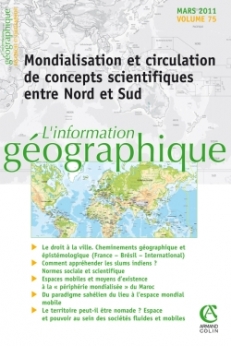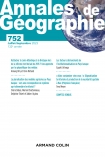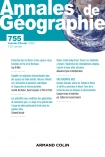
L'information géographique - Vol. 75 (1/2011)
Pour acheter ce numéro, contactez-nous
Recevez les numéros de l'année en cours et accédez à l'intégralité des articles en ligne.
Ce texte retrace l’émancipation d’une idée, celle du droit à la ville. Une réflexion épistémologique y sera développée, tentant de recenser les influences scientifiques et philosophiques ayant contribué à l’émergence de cette revendication, initialement portée par Henri Lefebvre. Puis, seront mentionnés quelques éléments importants du cheminement géographique suivi par ce construit et donc les différents apports qui sont venus l’enrichir. Car si l’idée d’un droit à la ville fut d’abord lancée dans un contexte scientifique français et soixante-huitard, il aura fallu que celle-ci transite par d’autres horizons, notamment brésiliens, pour connaître une destinée mondiale. Aujourd’hui, les instances internationales se montrent intéressées (ONU-Habitat, UNESCO) par une telle proposition.
This publication traces the history of an idea, that of the right to the city. Through an epistemological lens, there will be listed the various scientific and philosophical influences that contributed to the emergence of this right, initially claimed by Henri Lefebvre. Afterwards, the article will highlight some important stages in the international dissemination of this idea and the various changes that occurred simultaneously in the way of thinking it. Because although the suggestion of a right to the city first appeared in France at the end of the 1960’s, it is only after travelling through other societies, in particular the Brazilian one, that the idea get a world recognition. Today, the international bodies appear to be indeed very interested in the affirmation of such a right.

